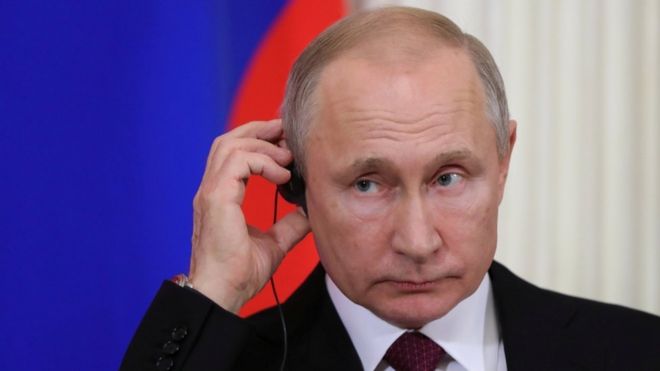DIGITAL LIFE

Russia wants to follow Chinese model by turning off its internet
Russia is considering briefly disconnecting from the global internet as part of a test of its cyber defenses.
This will mean that data sent by Russian citizens and organizations will only circulate within the country, rather than being routed internationally.
A bill establishing the necessary technical changes for the Russian internet to operate independently was presented to Parliament last year.
Big disturbance
The bill, called the National Digital Economy Program, requires Russian providers to be able to operate if foreign powers take steps to isolate the country from the online world.
NATO (the military alliance of 29 countries in Europe and North America) and its allies have threatened to punish Russia for cyber attacks and other online actions for which it is regularly accused.
The measures outlined in the law include Russia's own version of the network address system, known as DNS, so it can operate if connections to international servers are severed.
Twelve organizations currently oversee DNS-based servers, none of which are in Russia. However, several copies of the core network address pool are already circulating in Russia, indicating that their systems could continue to operate even if action was taken to digitally isolate the country.
Testing should also involve providers to demonstrate that they can direct data to government-controlled routing points. They will filter traffic so that data sent between Russians reaches their destination and any sending to foreign computers is discarded.
Finally, the Russian government wants all domestic traffic to pass through these routing points. This is believed to be part of an effort to create a mass censorship system similar to China, which attempts to block any traffic deemed prohibited.
Russian news organizations reported that the country's providers are broadly supporting the bill's objectives, but are divided on how to do so. They believe the test will cause "major disruptions" to Internet traffic in Russia, technology news website ZDNet said.
The Russian government is paying providers to modify their infrastructure by allowing data redirection testing.
Twelve organizations currently oversee DNS-based servers, none of which are in Russia. However, several copies of the core network address pool are already circulating in Russia, indicating that their systems could continue to operate even if action was taken to digitally isolate the country.
Testing should also involve providers to demonstrate that they can direct data to government-controlled routing points. They will filter traffic so that data sent between Russians reaches their destination and any sending to foreign computers is discarded.
Finally, the Russian government wants all domestic traffic to pass through these routing points. This is believed to be part of an effort to create a mass censorship system similar to China, which attempts to block any traffic deemed prohibited.
Russian news organizations reported that the country's providers are broadly supporting the bill's objectives, but are divided on how to do so. They believe the test will cause "major disruptions" to Internet traffic in Russia, technology news website ZDNet said.
The Russian government is paying providers to modify their infrastructure by allowing data redirection testing.
BBC

No comments:
Post a Comment